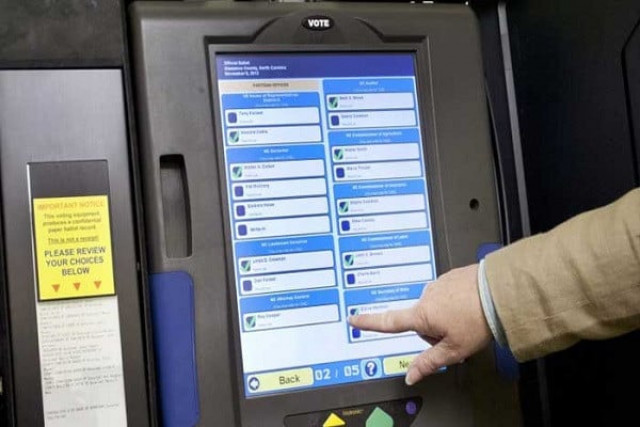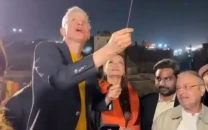Govt eyes consensus on local govt law
Minister says proposals to revive UCs accepted

Members of a committee of the provincial assembly from the ruling alliance and the opposition have reportedly developed consensus on 125 out of 222 provisions of the Punjab Local Government Act. Provincial Local Government Minister Mian Mahmoodur Rashid told The Express Tribune that seven meetings of the standing committee had been held and an agreement on the remaining clauses of the law was also likely in the next sessions.
The minister said the Punjab Assembly speaker had formed a larger committee of members from the ruling coalition and the opposition to create consensus in the house on the Local Government Act. He said proposals presented by the opposition members had not only been debated during meetings of the standing committee but the appropriate suggestions had been included in the draft of the law. The local government minister said that on the suggestion of the members, the name of neighbourhood and village councils would again be changed to union council.
According to the members, union council is a common and easy name, he added. He said the number of reserved and general seats in the local bodies would also be increased. Seats will be reserved for businesspersons and people with special needs. The mayors of all districts will be elected directly on the polling day. The district and local body representatives will be elected on a party basis. A deputy mayor will be elected from each tehsil in a district, while each district assembly will have 12 ‘ministers’ with two seats reserved for technocrats. The term of the local bodies will be four years.
The minister said the local institutions would have full political, financial and administrative powers under Article 140A of the Constitution. He added that the new local government system in the province would be an important step towards ensuring welfare of the people through empowered local institutions. The new system is being formed in consultation with all coalition parties and the opposition, the minister said. He said that with the establishment of empowered local governments, the problems of the people would be solved at their doorstep. Unlike in the past, the devolution of power to the local level has been ensured in the new local government system, he claimed.
The provincial minister said the development authorities, waste management companies, parks and horticulture authorities, water and sanitation agencies and market committees will be subordinate to the mayors. The district health, education, social welfare and sports authorities will also fall under the mayor. The minister said the government wanted the local body elections held through electronic voting machines (EVMs). However, the final decision will be made by the Election Commission.



















COMMENTS
Comments are moderated and generally will be posted if they are on-topic and not abusive.
For more information, please see our Comments FAQ